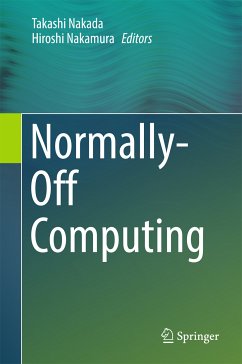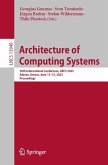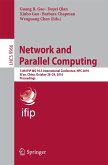The book discusses various topics including (1) details of low-power technologies including power gating, (2) characteristics of several new-generation NVMs, (3) normally-off computing architecture, (4) important technologies for implementing normally-off computing, (5) three practical implementations: healthcare, mobile information devices, and sensor network systems for smart city applications, and (6) related research and development.
Bridging computing methodology and emerging memory devices, the book is designed for both hardware and software designers, engineers, and developers as comprehensive material for understanding normally-off computing.
Dieser Download kann aus rechtlichen Gründen nur mit Rechnungsadresse in A, B, BG, CY, CZ, D, DK, EW, E, FIN, F, GR, HR, H, IRL, I, LT, L, LR, M, NL, PL, P, R, S, SLO, SK ausgeliefert werden.









